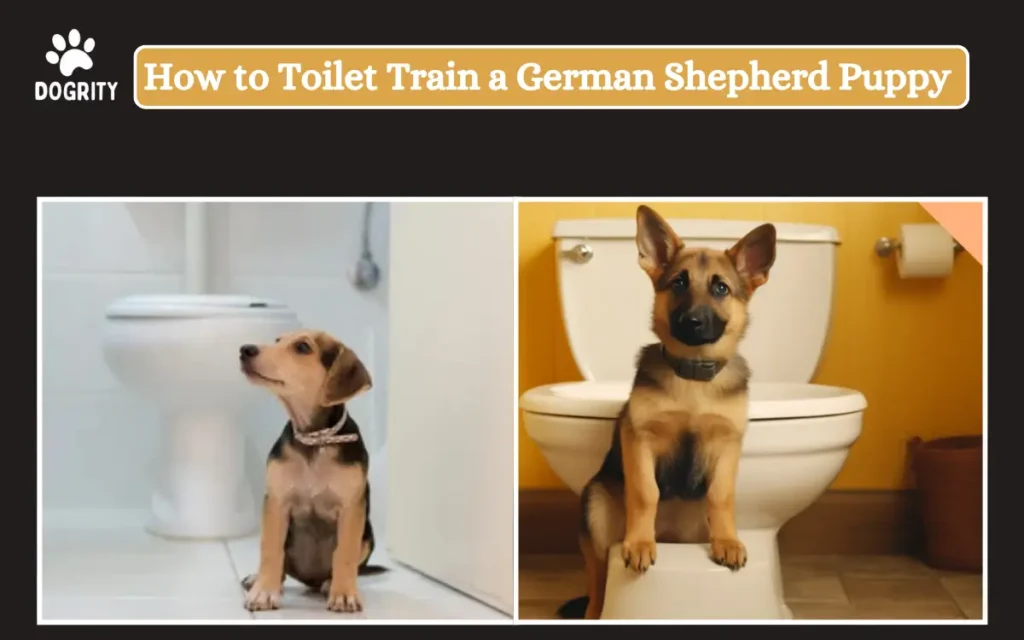Growing Your German Shepherd Puppy’s Potty Training Skills
Toilet training a German Shepherd puppy may seem difficult, but it is completely possible with a little love, patience, and resolve! At first, I was unsure of how to start training my own German Shepherd, but a methodical approach proved to be crucial. To help you and your dog get back on track, let me share what worked for me.
1. Pick the Perfect Spot for Potty Breaks
The first thing I learned was the importance of consistency in choosing a potty spot. Puppies thrive when they have a designated area to do their business, whether it’s a specific corner of the yard or a spot near a tree.
Every time I took my puppy out, we went to the same spot. Over time, he began to associate that location with potty time. If you live in an apartment or don’t have access to a yard, a potty tray can work as a temporary solution. Just make sure to gradually transition to outdoor training if that’s your goal.
2. Create a Routine They Can Count On
Puppies need structure, and creating a daily routine for potty breaks makes life easier for both of you. My schedule looked something like this:
- First thing in the morning: Straight to the potty spot.
- After meals: Puppies usually need to go within 15 minutes of eating.
- After playtime or naps: Wake-ups are prime potty moments.
- Before bedtime: To avoid those late-night accidents.
It took a little time, but sticking to this routine paid off. My puppy soon knew exactly when to expect potty breaks, and accidents became less frequent.
3. Teach Them a Command They’ll Recognize
Using a specific potty command was a game-changer for me. I started using the phrase “Go potty” every time we were at the potty spot. At first, it felt a little silly repeating myself, but soon enough, my pup understood what I was asking.
Whatever phrase you choose, keep it consistent. This trick especially comes in handy during busy mornings or when you’re traveling.
4. Keep Meal Times Predictable
Free-feeding your puppy (leaving food out all day) might seem convenient, but it can make potty training harder. Instead, set specific meal times to regulate their digestion and make potty needs more predictable.
For my puppy, I fed him three small meals a day at the same time. It wasn’t long before I could anticipate when he’d need to go, making the whole process much smoother.
Related article: Why Is Your Dog Suddenly Pooping a Lot? Causes & Solutions
5. Reward the Good, Ignore the Mess
Positive additional support is your best tool when it comes to potty training. Every time my puppy went in the right spot, I gave him a treat and lots of enthusiastic praise.
Keep a stash of small treats handy and reward your pup immediately after they do their business in the right place. On the flip side, don’t scold them for accidents. Instead, clean up the mess thoroughly (using an enzymatic cleaner to remove odors) and focus on getting it right next time.
6. Say No to Potty Pads (If You Can)
Potty pads might seem like a convenient option, but in my experience, they can slow down the overall training process. My pup initially thought rugs and other soft surfaces were fair game because of the potty pads!
If you do use them, make sure to transition to outdoor training as soon as possible. Keeping it consistent is key to avoiding confusion.
7. Stick to the Plan (Even on Hard Days)
Consistency is the secret sauce to successful potty training. There were days when my puppy had accidents, and I felt like nothing was working. But each slip-up was a chance to learn and improve.
Remember, patience is everything. Celebrate the small wins like a day with no accidents and keep your focus on the long-term goal.
Bonus Tips for Success
Here are a few more things that helped me along the way:
- Crate Training: A properly sized crate can work wonders. Puppies naturally avoid soiling their sleeping area, which helps teach bladder control.
- Supervision: During the early stages, I kept a close eye on my puppy. If I couldn’t supervise, I confined him to a safe area.
- Cleaning Up: Using an enzymatic cleaner for accidents is crucial. Regular cleaners may leave behind scents that encourage repeat mistakes.
Final Thoughts
Potty training a German Shepherd puppy takes time, but it’s an essential part of raising a happy and well-adjusted dog. Trust me, the effort you put in now will save you so much stress later on.
With patience, consistency, and plenty of positive reinforcement, you’ll soon have a well-trained pup who knows exactly where to go. Don’t forget to enjoy the journey. It’s all part of building an incredible bond with your furry friend.
Curious about German Shepherds? Find out more here!
- What Are German Shepherd Behavior Traits? | Training Tips & Solutions
- How to Master Training Commands for German Shepherds? Essential Tips Inside!
- Are German Shepherds Easy to Train? Tips for Training Your GSD







